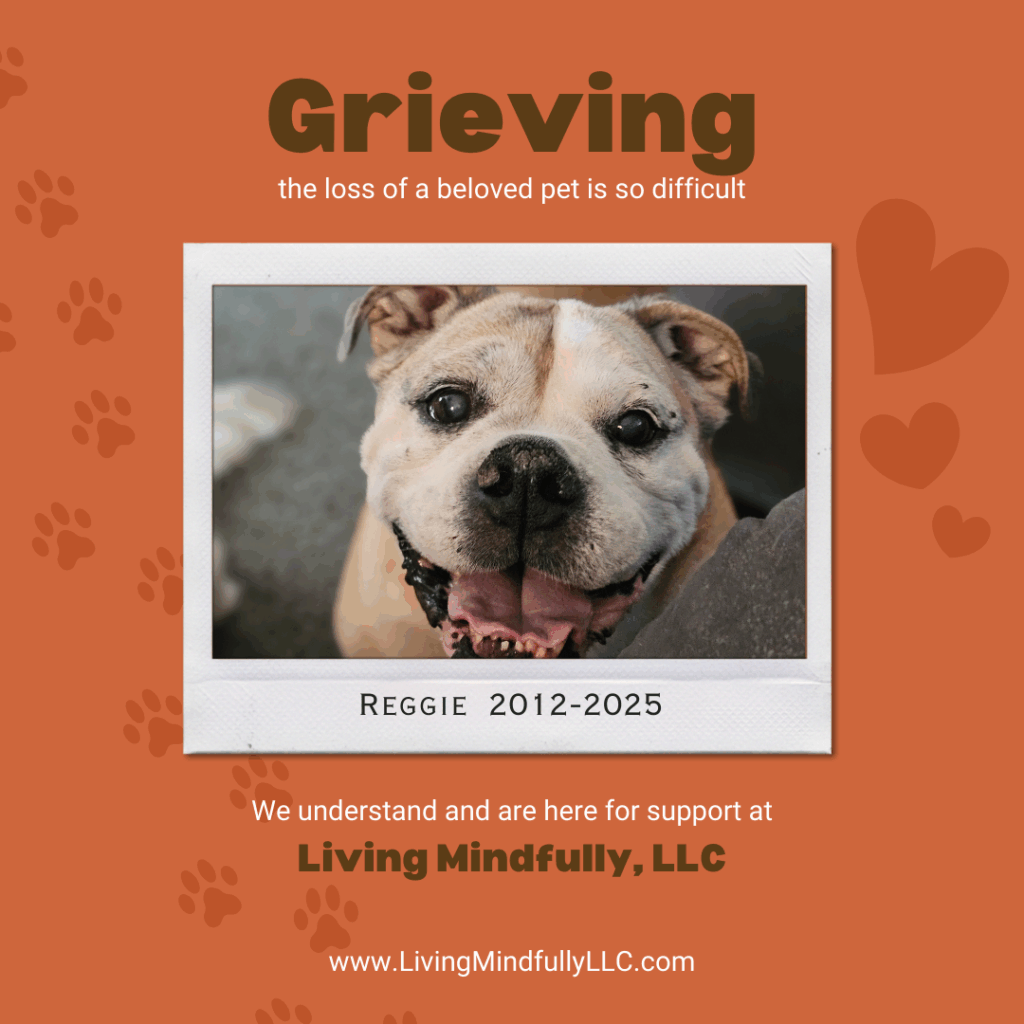
Coping with the Loss of a Pet
The bond we form with pets is deep, unconditional, and healing. That’s why losing a beloved animal companion can feel devastating. Yet, pet loss grief is often minimized or misunderstood by others, leaving people to suffer silently. This type of grief is sometimes called disenfranchised grief—grief that society doesn’t always fully recognize (Packman et al., 2011).
Why pet loss feels so heavy
-
Attachment bonds. Neurochemical research shows pets and their owners share oxytocin responses similar to those between parents and children (Nagasawa et al., 2015). Losing that bond can feel like losing a family member.
-
Loss of daily structure. Feeding, walks, cuddles—pets become woven into daily life. Their absence leaves not just emotional pain, but empty routines.
-
Unacknowledged grief. Without the cultural rituals we have for human loss, many people feel isolated in their mourning.
Healing strategies
-
Create rituals. Memorialize your pet with photos, a keepsake, or a small ceremony.
-
Honor the bond. Journaling about favorite memories or writing a letter to your pet can help process grief.
-
Seek support. Consider joining a pet loss support group or sharing your feelings with a trusted friend or therapist.
Grieving a pet is not a sign of weakness—it is a testament to the depth of love and connection you shared.
At Living Mindfully, LLC, our licensed therapists—Staci Vanzant, LCSW, NBC-HWC, Gabrielle Foley, LCSW, RYT-200, and MacKenzie Sering, LCSW—offer compassionate guidance to help you move through grief and honor your experiences. We provide virtual sessions in Arkansas, California, Delaware, Florida, Indiana, and New Jersey, as well as in-person counseling in Indiana. Reach out today to learn how we can walk alongside you.
👉 Missed our last post? Learn about the mental health benefits of pet ownership here.

Staci Vanzant
LCSW, NBC-HWC
